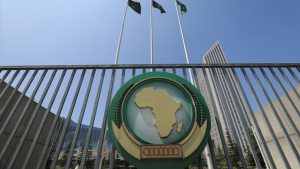‘SA’s ongoing protest phenomenon reflects failures in political, economic systems’
SHARE THIS PAGE!
South Africa continues to hold the unenviable title of the “protest capital of the world,” with more than 13,500 protests recorded annually, as reported in the 2018 South African Human Rights Commission Pamphlet on Community Protests.
These protests, often driven by the country’s marginalized communities, have brought to the forefront issues ranging from housing and water to sanitation and electricity.
Dr. Trevor Ngwane, the founding leader of the Anti-Privatisation Forum and the Soweto Electricity Committee, has cast a critical eye on the nation’s political system, asserting that it has let down the country’s impoverished citizens, compelling them to resort to protest as a means of voicing their grievances and unmet demands.
He attributes much of this frustration to the capitalist economic model, which, in his view, disproportionately favours the wealthy while leaving the poor to grapple with unaddressed needs and frustrations. He notes that the current system has led to a society where individuals feel compelled to take to the streets to seek redress and assert their rights.
The political system has failed the poor: Dr Trevor NgwaneNgwane states, “The political system in SA and the economic system in particular has failed the people. It works for the rich at the expense of the poor. So, it forces the people to take to the streets and to protest in order to get what they want.”
However, he emphasizes that protests alone are not the ultimate solution to the challenges South Africa faces. Ngwane calls for collective action, urging people to come together to formulate new visions, strategies, and organizations.
This collaborative effort, he believes, is essential to dismantling the current system and replacing it with one that genuinely serves the interests of all citizens, which he refers to as “Socialism.”
South Africa’s persistent protest phenomenon, characterised by a diverse range of movements and campaigns, underscores deep-rooted issues within the country’s political and economic structures.
While protests have historically played a crucial role in advocating for change, Ngwane’s critique highlights the need for systemic reform to address the concerns of marginalized communities and foster a more equitable society.
Spotlight on protest actions in South Africa:

AU commits to implement 2063 agenda
4 hours ago